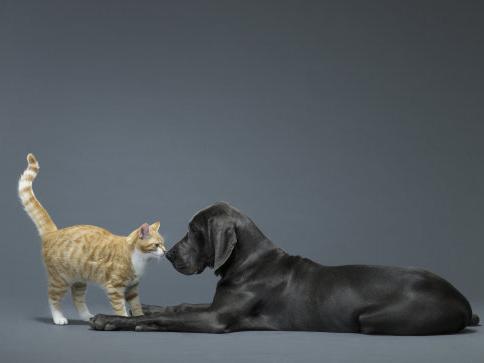Which love us more - cats or dogs?
Turn away now if you're a cat lover

Your support helps us to tell the story
From reproductive rights to climate change to Big Tech, The Independent is on the ground when the story is developing. Whether it's investigating the financials of Elon Musk's pro-Trump PAC or producing our latest documentary, 'The A Word', which shines a light on the American women fighting for reproductive rights, we know how important it is to parse out the facts from the messaging.
At such a critical moment in US history, we need reporters on the ground. Your donation allows us to keep sending journalists to speak to both sides of the story.
The Independent is trusted by Americans across the entire political spectrum. And unlike many other quality news outlets, we choose not to lock Americans out of our reporting and analysis with paywalls. We believe quality journalism should be available to everyone, paid for by those who can afford it.
Your support makes all the difference.For eternal cat lovers everywhere, this is going to come as disappointing news: our feline friends don't care about us as much as dogs do.
As part of a new BBC2 documentary called "Cats v. Dogs", hosted by animal experts Chris Packham and Liz Bonnin, a neuroscientist has tested which of our favoured pets is likely to love us more.
Scientists already know that dogs - like humans - release oxytocin, also known as the "love hormone", when they are in contact with their owner. The test has previously never been carried out on cats.
"We have pretty good evidence that dogs actually love their humans,” according to Dr Paul Zak, who conducted the study. "A couple of small-scale studies have shown that when owners interact with their dogs, the human and their dog appear to release oxytocin.
"It’s one of the chemical measures of love in mammals. Humans produce the hormone in our brains when we care about someone. For example, when we see our spouse or child the levels in our bloodstream typically rise by 40-60 per cent.”
Dr Zak compared how much of the "love hormone" cats and dogs produces after having played with their owners.
He took saliva samples from 10 cats and 10 dogs on two occasions - 10 minutes before a playtime session with their owners and immediately after - and tested both samples for oxytocin.
The results show the hormone increased by an average of 57.2 per cent in dogs but only by 12 per cent in cats - which means, in theory, dogs liked their owners five times more than cats do.
"I was really surprised to discover that dogs produced such high levels of oxytocin… the dog level of 57.2 per cent is a very powerful response. It shows these dogs really care about their owners. It was also a nice surprise to discover that cats produce any at all. At least some of the time, cats seem to bond with their owners,” he added.
Join our commenting forum
Join thought-provoking conversations, follow other Independent readers and see their replies
Comments